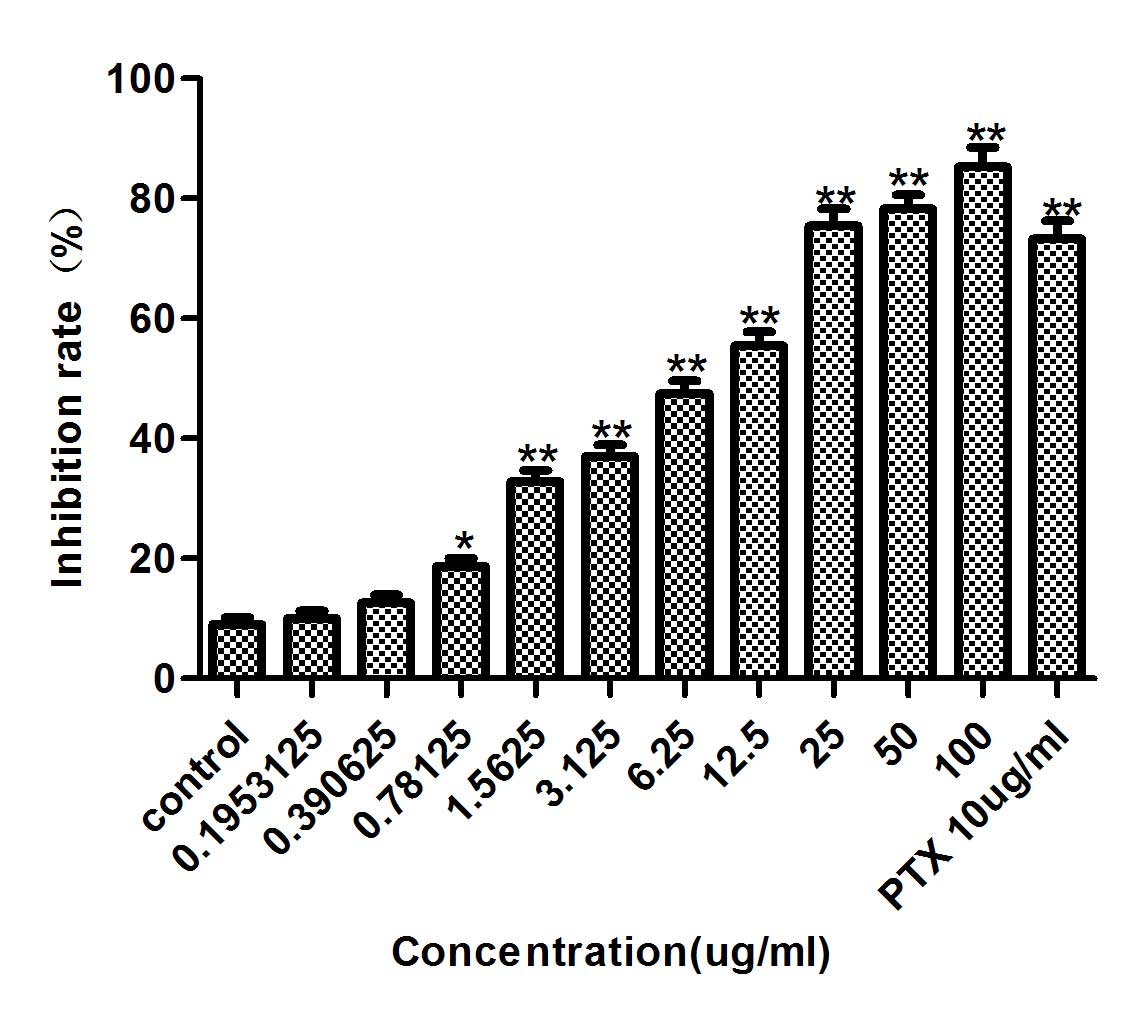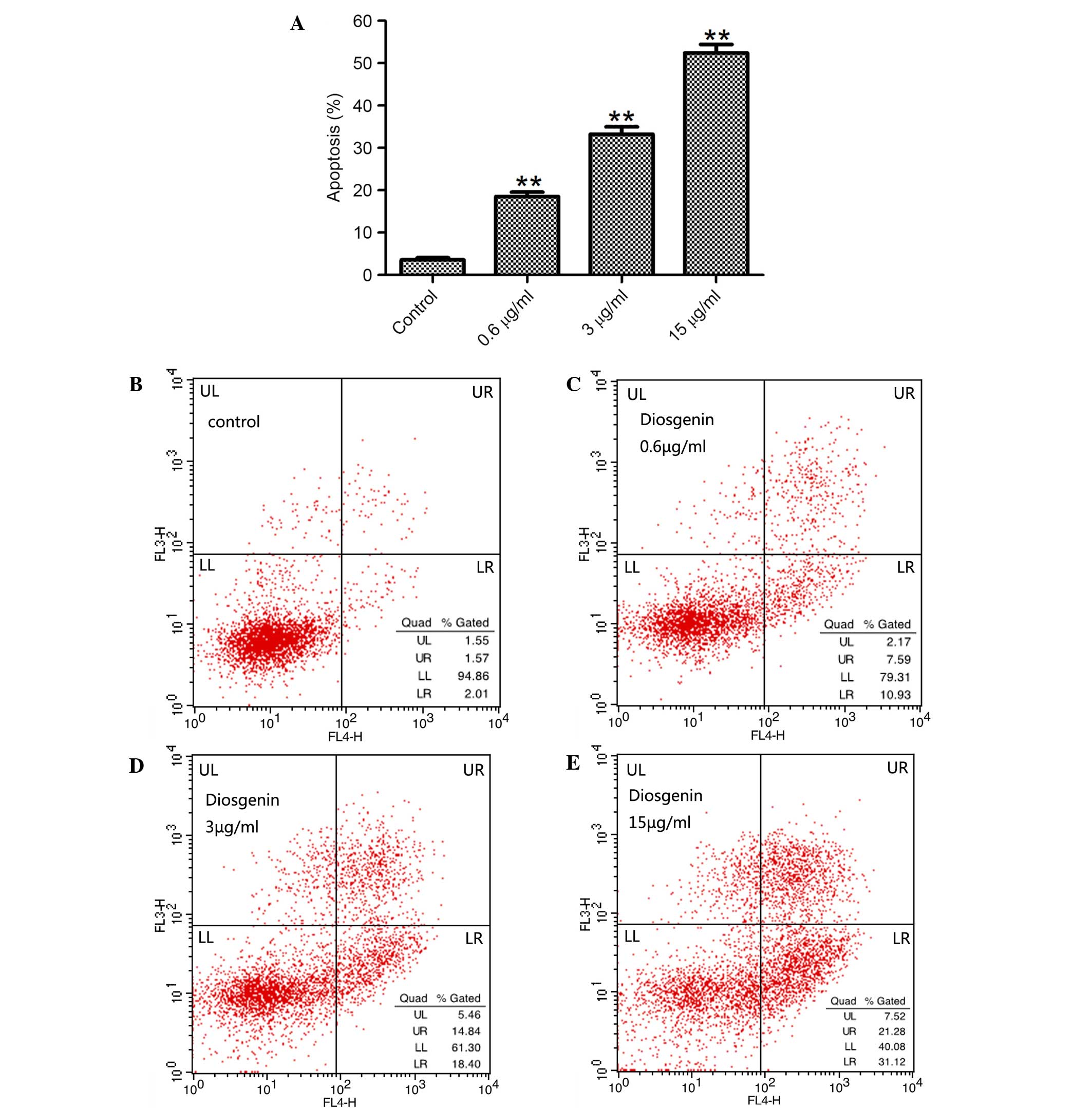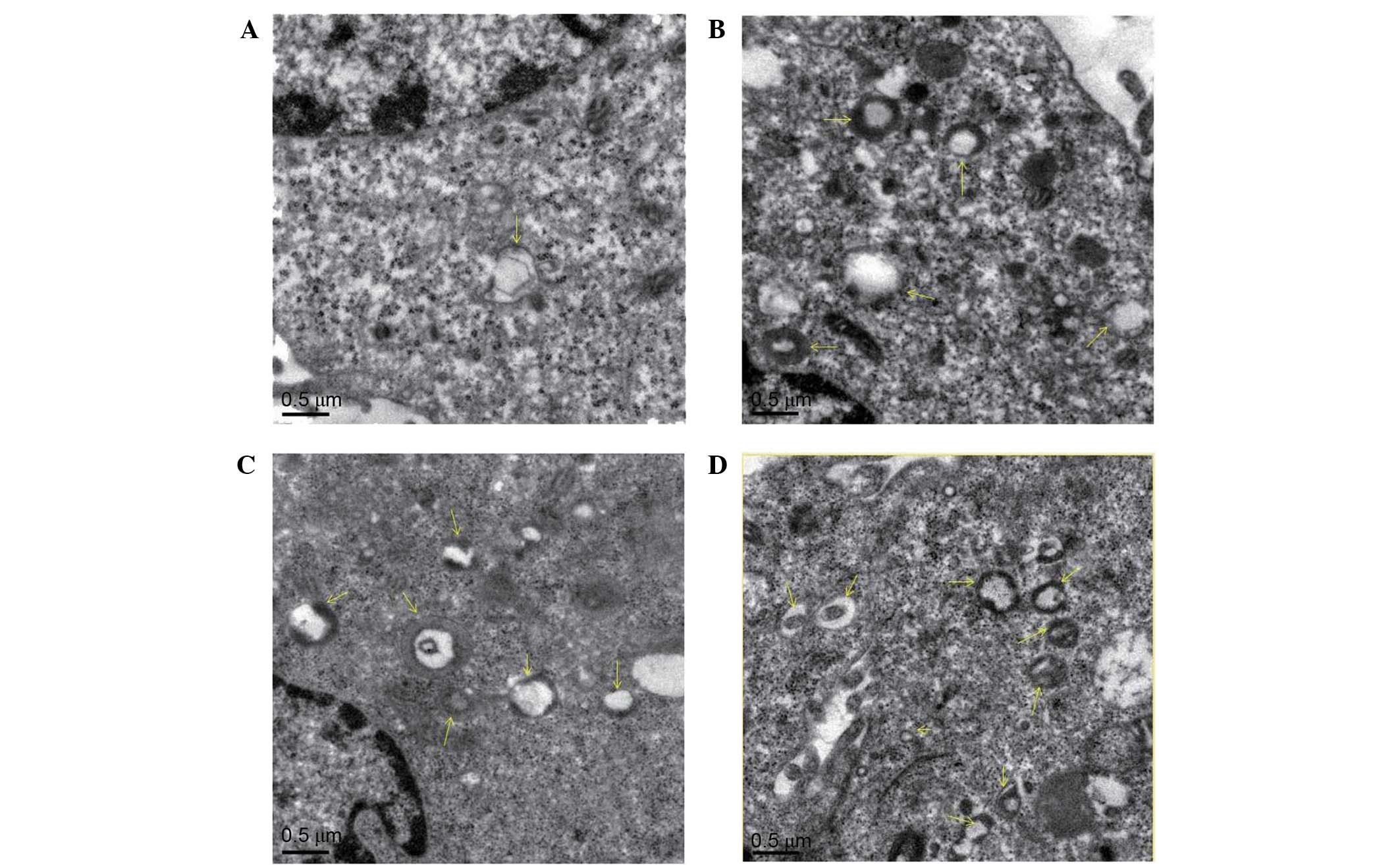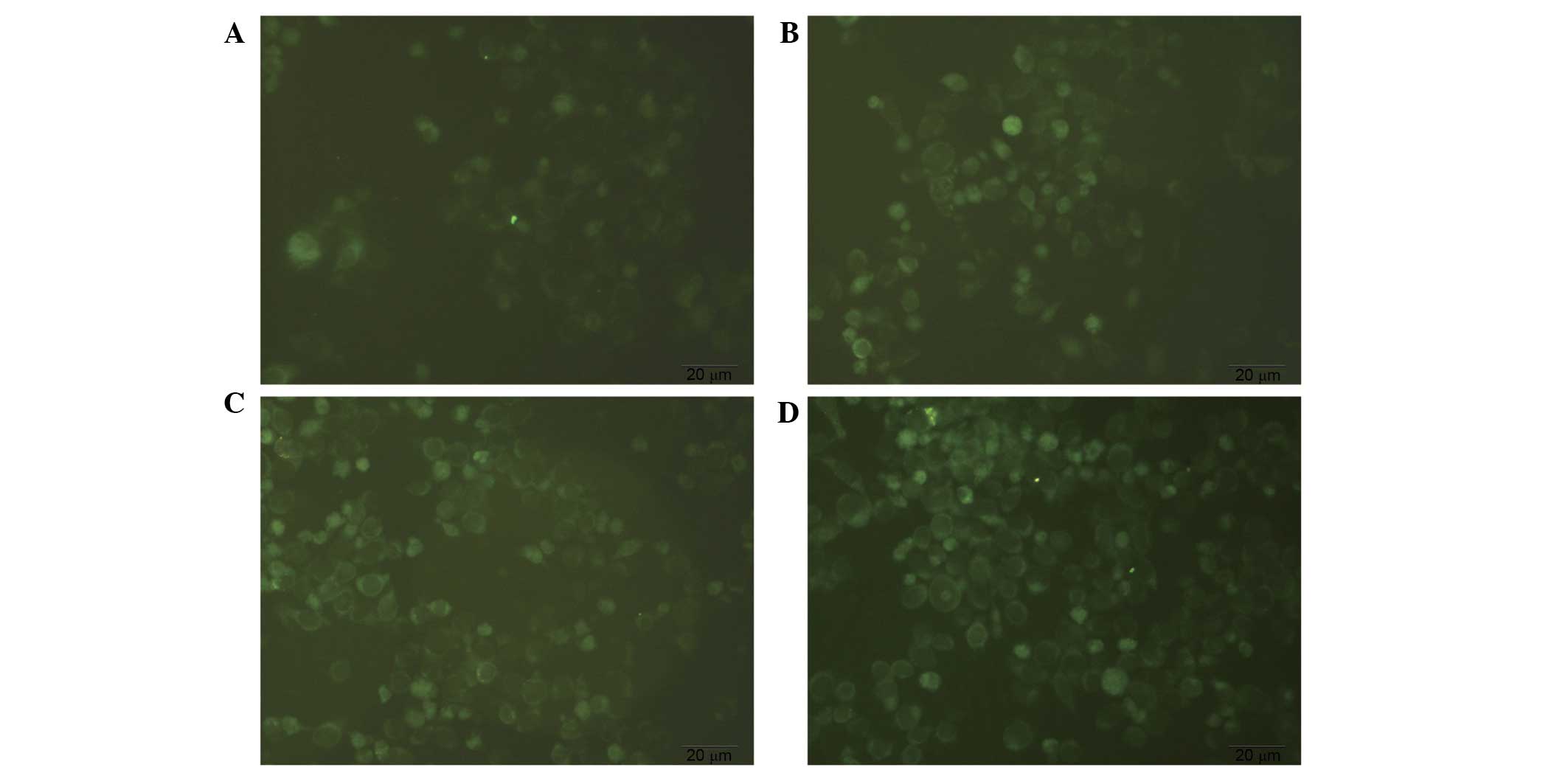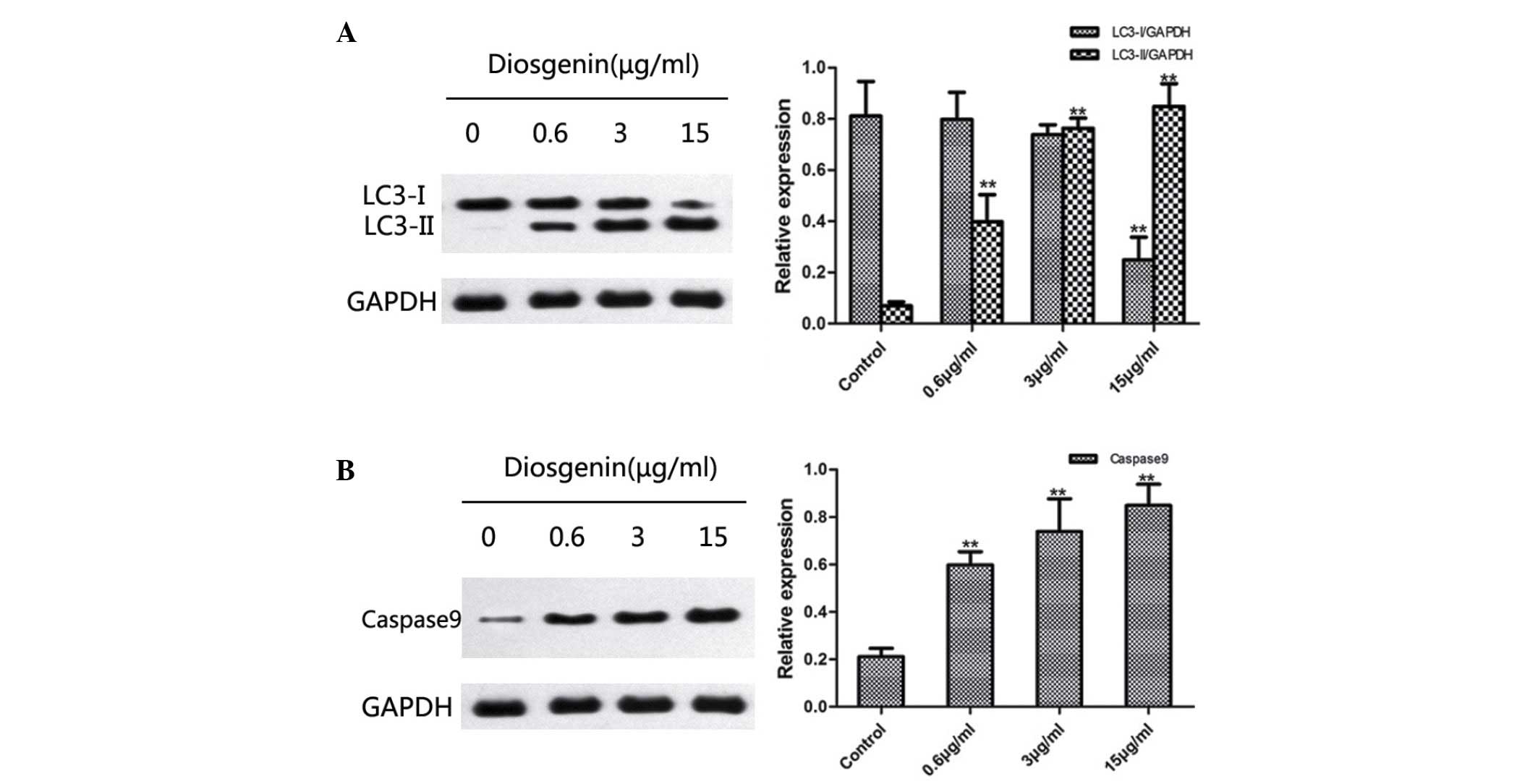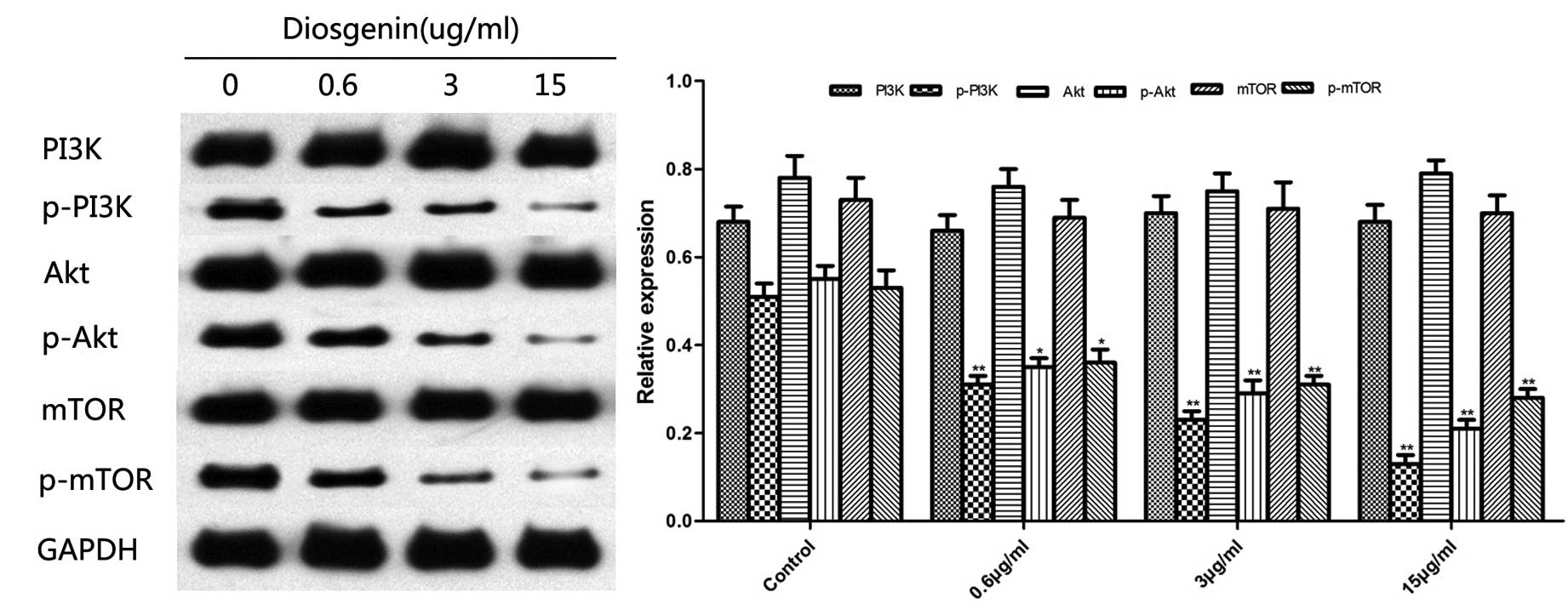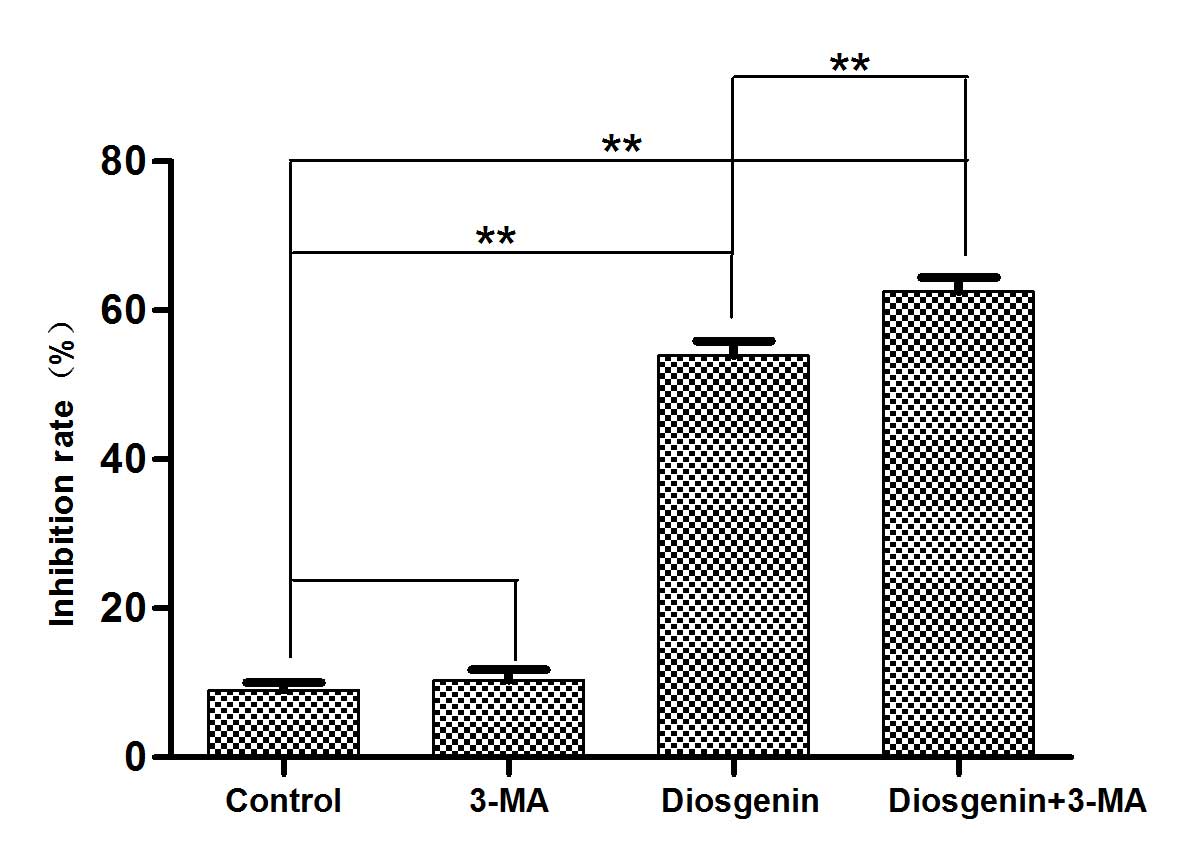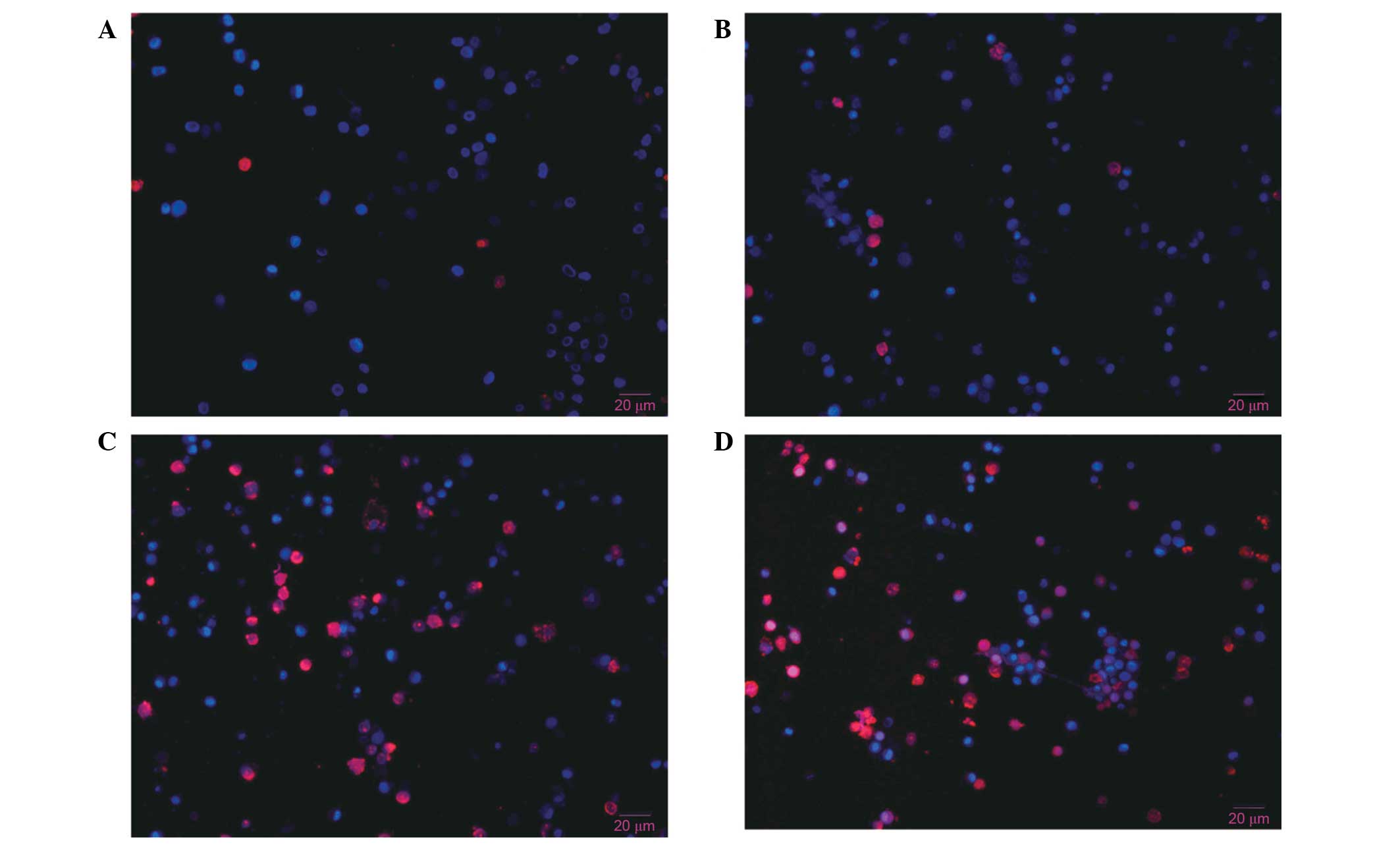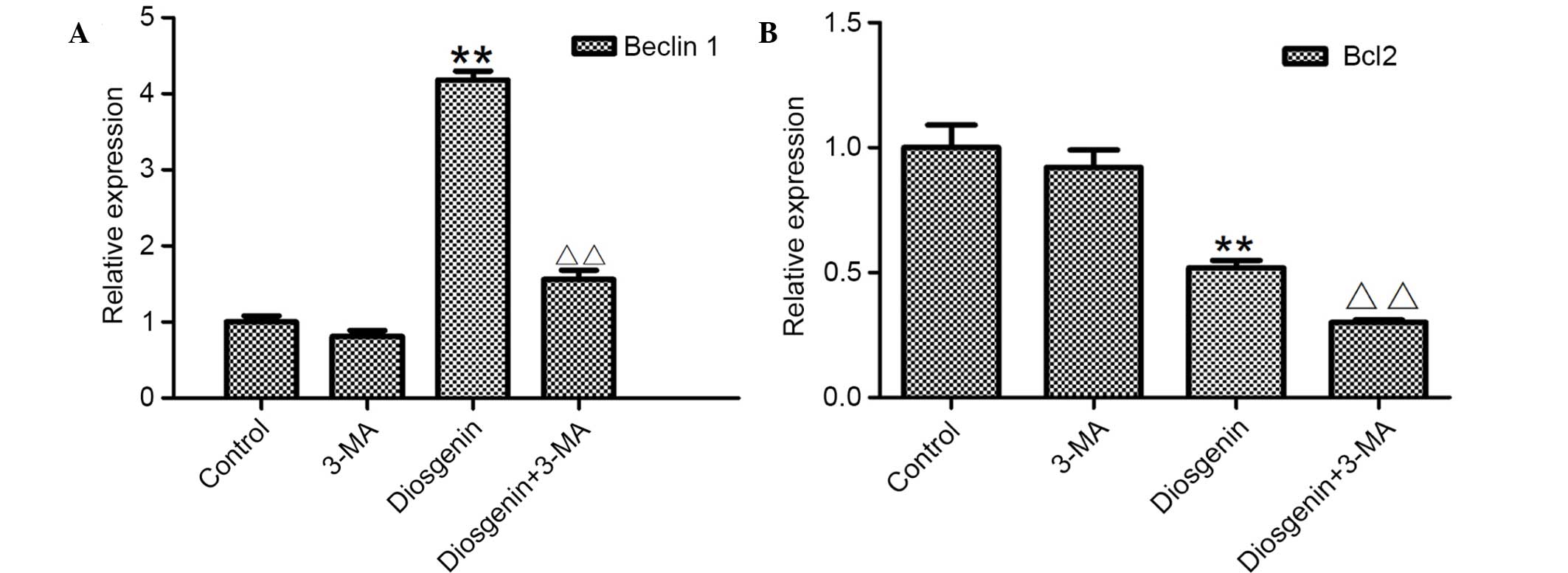|
1
|
Zhou CK, Check DP, Lortet-Tieulent J,
Laversanne M, Jemal A, Ferlay J, Bray F, Cook MB and Devesa SS:
Prostate cancer incidence in 43 populations worldwide: An analysis
of time trends overall and by age group. Int J Cancer.
138:1388–1400. 2016. View Article : Google Scholar : PubMed/NCBI
|
|
2
|
Siegel R, Naishadham D and Jemal A: Cancer
statistics, 2013. CA Cancer J Clin. 63:11–30. 2013. View Article : Google Scholar : PubMed/NCBI
|
|
3
|
Peskoe SB, Joshu CE, Rohrmann S, McGlynn
KA, Nyante SJ, Bradwin G, Dobs AS, Kanarek N, Nelson WG and Platz
EA: Circulating total testosterone and PSA concentrations in a
nationally representative sample of men without a diagnosis of
prostate cancer. Prostate. 75:1167–1176. 2015. View Article : Google Scholar : PubMed/NCBI
|
|
4
|
Glybochko PV, Aliaev IuG, Krupinov GE,
Rapoport LM, Amosov AV, Bezrukov EA, Novichkov ND, Lachinov ÉL,
Ganzha TM, Obukhov AA and Lerner IuV: Diagnosis and treatment of
local recurrence of prostate cancer using hystoscanning and
high-intensity focused ultrasound in patients after radical
prostatectomy. Urologiia. 72–76. 2014.(In Russian).
|
|
5
|
Kelly BD, Miller N, Sweeney KJ, Durkan GC,
Rogers E, Walsh K and Kerin MJ: A circulating MicroRNA signature as
a biomarker for prostate cancer in a high risk group. J Clin Med.
4:1369–1379. 2015. View Article : Google Scholar : PubMed/NCBI
|
|
6
|
Bahl A, Hoefeler H, Duran I, Hechmati G,
Garzon-Rodriguez C, Ashcroft J, Lorusso V, Ghelani P, Wei R, Thomas
E and Lüftner D: Health resource utilization associated with
skeletal-related events in patients with advanced prostate cancer:
A European subgroup analysis from an observational, multinational
study. J Clin Med. 3:883–896. 2014. View Article : Google Scholar : PubMed/NCBI
|
|
7
|
Singh P, Pal SK, Alex A and Agarwal N:
Development of PROSTVAC immunotherapy in prostate cancer. Future
Oncol. 11:2137–2148. 2015. View Article : Google Scholar : PubMed/NCBI
|
|
8
|
Miyamae K, Kitani K, Hara K, Nakakuma K,
Hamada Y, Yamasaki Y, Horio M and Miyamura S: Clinical study of
long-term docetaxel based chemotherapy treatment for patients with
castration-resistant prostate cancer. Nihon Hinyokika Gakkai
Zasshi. 105:172–177. 2014.PubMed/NCBI
|
|
9
|
Luo HC, Cheng HH, Lin GS, Fu ZC and Li DS:
Intensity- modulated radiotherapy combined with endocrine therapy
for intermediate and advanced prostate cancer: Long-term outcome of
Chinese patients. Asian Pac J Cancer Prev. 14:4711–4715. 2013.
View Article : Google Scholar : PubMed/NCBI
|
|
10
|
Ishizaki F, Hara N, Takizawa I, Nishiyama
T, Isahaya E, Kawasaki T and Takahashi K: Deficiency in androgens
and upregulation of insulin-like growth factor-1 are involved in
high bone turnover in men receiving androgen deprivation therapy
for prostate cancer. Growth Horm IGF Res. 22:122–128. 2012.
View Article : Google Scholar : PubMed/NCBI
|
|
11
|
Wang HQ, Jin JJ and Wang J: Matrine
induces mitochondrial apoptosis in cisplatin-resistant non-small
cell lung cancer cells via suppression of β-catenin/survivin
signaling. Oncol Rep. 33:2561–2566. 2015.PubMed/NCBI
|
|
12
|
Tuorkey MJ: Curcumin a potent cancer
preventive agent: Mechanisms of cancer cell killing. Interv Med
Appl Sci. 6:139–146. 2014.PubMed/NCBI
|
|
13
|
Cheng X, Gu J, Zhang M, Yuan J, Zhao B,
Jiang J and Jia X: Astragaloside IV inhibits migration and invasion
in human lung cancer A549 cells via regulating PKC-α-ERK1/2-NF-κB
pathway. Int Immunopharmacol. 23:304–313. 2014. View Article : Google Scholar : PubMed/NCBI
|
|
14
|
Zhu X, Liu S, Zhou J, Wang H, Fu R, Wu X,
Wang J and Lu F: Effect of Astragalus polysaccharides on chronic
atrophic gastritis induced by N-methyl-N'-nitro-N-nitrosoguanidine
in rats. Drug Res (Stuttg). 63:597–602. 2013. View Article : Google Scholar : PubMed/NCBI
|
|
15
|
Ku SK, Kwak S and Bae JS: Orientin
inhibits high glucose-induced vascular inflammation in vitro and in
vivo. Inflammation. 37:2164–2173. 2014. View Article : Google Scholar : PubMed/NCBI
|
|
16
|
Lucas CD, Dorward DA, Sharma S, Rennie J,
Felton JM, Alessandri AL, Duffin R, Schwarze J, Haslett C and Rossi
AG: Wogonin induces eosinophil apoptosis and attenuates allergic
airway inflammation. Am J Respir Crit Care Med. 191:626–636. 2015.
View Article : Google Scholar : PubMed/NCBI
|
|
17
|
Ma HD, Deng YR, Tian Z and Lian ZX:
Traditional Chinese medicine and immune regulation. Clin Rev
Allergy Immunol. 44:229–241. 2013. View Article : Google Scholar : PubMed/NCBI
|
|
18
|
Kim SG, Lee AJ, Bae SH, Kim SM, Lee JH,
Kim MJ and Jang HB: Total extract of Korean red ginseng facilitates
human bone marrow hematopoietic colony formation in vitro. Blood
Res. 49:177–181. 2014. View Article : Google Scholar : PubMed/NCBI
|
|
19
|
Zhao L, Wang Y, Shen HL, Shen XD, Nie Y,
Wang Y, Han T, Yin M and Zhang QY: Structural characterization and
radioprotection of bone marrow hematopoiesis of two novel
polysaccharides from the root of Angelica sinensis (Oliv.) Diels.
Fitoterapia. 83:1712–1720. 2012. View Article : Google Scholar : PubMed/NCBI
|
|
20
|
He Z, Chen H, Li G, Zhu H, Gao Y, Zhang L
and Sun J: Diosgenin inhibits the migration of human breast cancer
MDA-MB-231 cells by suppressing Vav2 activity. Phytomedicine.
21:871–876. 2014. View Article : Google Scholar : PubMed/NCBI
|
|
21
|
Yang HP, Yue L, Jiang WW, Liu Q, Kou JP
and Yu BY: Diosgenin inhibits tumor necrosis factor-induced tissue
factor activity and expression in THP-1 cells via down-regulation
of the NF-κB, Akt, and MAPK signaling pathways. Chin J Nat Med.
11:608–615. 2013. View Article : Google Scholar : PubMed/NCBI
|
|
22
|
Kalailingam P, Kannaian B, Tamilmani E and
Kaliaperumal R: Efficacy of natural diosgenin on cardiovascular
risk, insulin secretion, and beta cells in streptozotocin
(STZ)-induced diabetic rats. Phytomedicine. 21:1154–1161. 2014.
View Article : Google Scholar : PubMed/NCBI
|
|
23
|
Sato K, Fujita S and Iemitsu M: Acute
administration of diosgenin or dioscorea improves hyperglycemia
with increases muscular steroidogenesis in STZ-induced type 1
diabetic rats. J Steroid Biochem Mol Biol. 143:152–159. 2014.
View Article : Google Scholar : PubMed/NCBI
|
|
24
|
McKoy ML, Thomas PG, Asemota H, Omoruyi F
and Simon O: Effects of Jamaican bitter yam (Dioscorea
polygonoides) and diosgenin on blood and fecal cholesterol in rats.
J Med Food. 17:1183–1188. 2014. View Article : Google Scholar : PubMed/NCBI
|
|
25
|
Ebrahimi H, Badalzadeh R, Mohammadi M and
Yousefi B: Diosgenin attenuates inflammatory response induced by
myocardial reperfusion injury: Role of mitochondrial ATP-sensitive
potassium channels. J Physiol Biochem. 70:425–432. 2014. View Article : Google Scholar : PubMed/NCBI
|
|
26
|
Manivannan J, Shanthakumar J, Arunagiri P,
Raja B and Balamurugan E: Diosgenin interferes coronary
vasoconstriction and inhibits osteochondrogenic
transdifferentiation of aortic VSMC in CRF rats. Biochimie.
102:183–187. 2014. View Article : Google Scholar : PubMed/NCBI
|
|
27
|
Badalzadeh R, Yousefi B, Majidinia M and
Ebrahimi H: Anti-arrhythmic effect of diosgenin in
reperfusion-induced myocardial injury in a rat model: Activation of
nitric oxide system and mitochondrial KATP channel. J Physiol Sci.
64:393–400. 2014. View Article : Google Scholar : PubMed/NCBI
|
|
28
|
Ghosh S, More P, Derle A, Kitture R, Kale
T, Gorain M, Avasthi A, Markad P, Kundu GC, Kale S, et al:
Diosgenin functionalized iron oxide nanoparticles as novel
nanomaterial against breast cancer. J Nanosci Nanotechnol.
15:9464–9472. 2015. View Article : Google Scholar : PubMed/NCBI
|
|
29
|
Ding W, Jiang Y, Jiang Y, Zhu T, Xu Y,
Jiang W, Zhu W, Tang Z, Ge Z, Ma T and Tan Y: Role of SB203580 in
the regulation of human esophageal cancer cells under the effection
of Diosgenin. Int J Clin Exp Med. 8:2476–2479. 2015.PubMed/NCBI
|
|
30
|
Li Y, Wang X, Cheng S, Du J, Deng Z, Zhang
Y, Liu Q, Gao J, Cheng B and Ling C: Diosgenin induces G2/M cell
cycle arrest and apoptosis in human hepatocellular carcinoma cells.
Oncol Rep. 33:693–698. 2015.PubMed/NCBI
|
|
31
|
Mao ZJ, Tang QJ, Zhang CA, Qin ZF, Pang B,
Wei PK, Liu B and Chou YN: Anti-proliferation and anti-invasion
effects of diosgenin on gastric cancer BGC-823 cells with HIF-1α
shRNAs. Int J Mol Sci. 13:6521–6533. 2012. View Article : Google Scholar : PubMed/NCBI
|
|
32
|
Ganot N, Meker S, Reytman L, Tzubery A and
Tshuva EY: Anticancer metal complexes: Synthesis and cytotoxicity
evaluation by the MTT assay. J Vis Exp. e507672013.PubMed/NCBI
|
|
33
|
Livak KJ and Schmittgen TD: Analysis of
relative gene expression data using real-time quantitative PCR and
the 2(−Delta Delta C(T)) Method. Methods. 25:402–408. 2001.
View Article : Google Scholar : PubMed/NCBI
|
|
34
|
Würstle ML, Laussmann MA and Rehm M: The
central role of initiator caspase-9 in apoptosis signal
transduction and the regulation of its activation and activity on
the apoptosome. Exp Cell Res. 318:1213–1220. 2012. View Article : Google Scholar : PubMed/NCBI
|
|
35
|
Saleem M, Qadir MI, Perveen N and Ahmad B,
Saleem U, Irshad T and Ahmad B: Inhibitors of apoptotic proteins:
New targets for anticancer therapy. Chem Biol Drug Des. 82:243–251.
2013. View Article : Google Scholar : PubMed/NCBI
|
|
36
|
Floyd DH, Zhang Y, Dey BK, Kefas B, Breit
H, Marks K, Dutta A, Herold-Mende C, Synowitz M, Glass R, et al:
Novel anti-apoptotic microRNAs 582-5p and 363 promote human
glioblastoma stem cell survival via direct inhibition of caspase 3,
caspase 9, and Bim. PLoS One. 9:e962392014. View Article : Google Scholar : PubMed/NCBI
|
|
37
|
Ando M, Hoyos V, Yagyu S, Tao W, Ramos CA,
Dotti G, Brenner MK and Bouchier-Hayes L: Bortezomib sensitizes
non-small cell lung cancer to mesenchymal stromal cell-delivered
inducible caspase-9-mediated cytotoxicity. Cancer Gene Ther.
21:472–482. 2014. View Article : Google Scholar : PubMed/NCBI
|
|
38
|
Feng Y, He D, Yao Z and Klionsky DJ: The
machinery of macroautophagy. Cell Res. 24:24–41. 2014. View Article : Google Scholar : PubMed/NCBI
|
|
39
|
Belaid A, Ndiaye PD, Klionsky DJ, Hofman P
and Mograbi B: Signalphagy: Scheduled signal termination by
macroautophagy. Autophagy. 9:1629–1630. 2013. View Article : Google Scholar : PubMed/NCBI
|
|
40
|
Klionsky DJ and Codogno P: The mechanism
and physiological function of macroautophagy. J Innate Immun.
5:427–433. 2013. View Article : Google Scholar : PubMed/NCBI
|
|
41
|
Münz C: Regulation of innate immunity by
the molecular machinery of macroautophagy. Cell Microbiol.
16:1627–1636. 2014. View Article : Google Scholar : PubMed/NCBI
|
|
42
|
Hönscheid P, Datta K and Muders MH:
Autophagy: Detection, regulation and its role in cancer and therapy
response. Int J Radiat Biol. 90:628–635. 2014. View Article : Google Scholar : PubMed/NCBI
|
|
43
|
Patel AS, Morse D and Choi AM: Regulation
and functional significance of autophagy in respiratory cell
biology and disease. Am J Respir Cell Mol Biol. 48:1–9. 2013.
View Article : Google Scholar : PubMed/NCBI
|
|
44
|
Lorin S, Hamaï A, Mehrpour M and Codogno
P: Autophagy regulation and its role in cancer. Semin Cancer Biol.
23:361–379. 2013. View Article : Google Scholar : PubMed/NCBI
|
|
45
|
Thorburn A, Thamm DH and Gustafson DL:
Autophagy and cancer therapy. Mol Pharmacol. 85:830–838. 2014.
View Article : Google Scholar : PubMed/NCBI
|
|
46
|
Polewska J: Autophagy-molecular mechanism,
apoptosis and cancer. Postepy Hig Med Dosw (Online). 66:921–936.
2012.(In Polish). View Article : Google Scholar : PubMed/NCBI
|
|
47
|
Chen HY and White E: Role of autophagy in
cancer prevention. Cancer Prev Res (Phila). 4:973–983. 2011.
View Article : Google Scholar : PubMed/NCBI
|
|
48
|
Slobodkin MR and Elazar Z: The Atg8
family: Multifunctional ubiquitin-like key regulators of autophagy.
Essays Biochem. 55:51–64. 2013. View Article : Google Scholar : PubMed/NCBI
|
|
49
|
Romao S and Münz C: LC3-associated
phagocytosis. Autophagy. 10:526–528. 2014. View Article : Google Scholar : PubMed/NCBI
|
|
50
|
Rogov V, Dötsch V, Johansen T and Kirkin
V: Interactions between autophagy receptors and ubiquitin-like
proteins form the molecular basis for selective autophagy. Mol
Cell. 53:167–178. 2014. View Article : Google Scholar : PubMed/NCBI
|
|
51
|
Gong J, Muñoz AR, Chan D, Ghosh R and
Kumar AP: STAT3 down regulates LC3 to inhibit autophagy and
pancreatic cancer cell growth. Oncotarget. 5:2529–2541. 2014.
View Article : Google Scholar : PubMed/NCBI
|
|
52
|
Xia P and Xu XY: PI3K/Akt/mTOR signaling
pathway in cancer stem cells: From basic research to clinical
application. Am J Cancer Res. 5:1602–1609. 2015.PubMed/NCBI
|
|
53
|
Cheaib B, Auguste A and Leary A: The
PI3K/Akt/mTOR pathway in ovarian cancer: Therapeutic opportunities
and challenges. Chin J Cancer. 34:4–16. 2015. View Article : Google Scholar : PubMed/NCBI
|
|
54
|
Polivka J Jr and Janku F: Molecular
targets for cancer therapy in the PI3K/AKT/mTOR pathway. Pharmacol
Ther. 142:164–175. 2014. View Article : Google Scholar : PubMed/NCBI
|
|
55
|
Jiang YQ, Chang GL, Wang Y, Zhang DY, Cao
L and Liu J: Geniposide prevents hypoxia/reoxygenation-induced
apoptosis in H9c2 Cells: Improvement of mitochondrial dysfunction
and activation of GLP-1R and the PI3K/AKT signaling pathway. Cell
Physiol Biochem. 39:407–421. 2016. View Article : Google Scholar : PubMed/NCBI
|
|
56
|
Burris HA III: Overcoming acquired
resistance to anticancer therapy: Focus on the PI3K/AKT/mTOR
pathway. Cancer Chemother Pharmacol. 71:829–842. 2013. View Article : Google Scholar : PubMed/NCBI
|
|
57
|
Inoki K: mTOR signaling in autophagy
regulation in the kidney. Semin Nephrol. 34:2–8. 2014. View Article : Google Scholar : PubMed/NCBI
|
|
58
|
Alers S, Löffler AS, Wesselborg S and
Stork B: Role of AMPK-mTOR-Ulk1/2 in the regulation of autophagy:
Cross talk, shortcuts, and feedbacks. Mol Cell Biol. 32:2–11. 2012.
View Article : Google Scholar : PubMed/NCBI
|
|
59
|
Sangawa A, Shintani M, Yamao N and
Kamoshida S: Phosphorylation status of Akt and caspase-9 in gastric
and colorectal carcinomas. Int J Clin Exp Pathol. 7:3312–3317.
2014.PubMed/NCBI
|
|
60
|
Won KY, Kim GY, Lim SJ, Sung JY, Kim YW,
Park YK, Lee J and Choi HS: Autophagy is related to the hedgehog
signaling pathway in human gastric adenocarcinoma: Prognostic
significance of Beclin-1 and Gli2 expression in human gastric
adenocarcinoma. Pathol Res Pract. 211:308–315. 2015. View Article : Google Scholar : PubMed/NCBI
|
|
61
|
Zhong Y, Morris DH, Jin L, Patel MS,
Karunakaran SK, Fu YJ, Matuszak EA, Weiss HL, Chait BT and Wang QJ:
Nrbf2 protein suppresses autophagy by modulating Atg14L
protein-containing Beclin 1-Vps34 complex architecture and reducing
intracellular phosphatidylinositol-3 phosphate levels. J Biol Chem.
289:26021–26037. 2014. View Article : Google Scholar : PubMed/NCBI
|
|
62
|
Czabotar PE, Lessene G, Strasser A and
Adams JM: Control of apoptosis by the BCL-2 protein family:
Implications for physiology and therapy. Nat Rev Mol Cell Biol.
15:49–63. 2014. View Article : Google Scholar : PubMed/NCBI
|
|
63
|
Salminen A, Kaarniranta K and Kauppinen A:
Beclin 1 interactome controls the crosstalk between apoptosis,
autophagy and inflammasome activation: Impact on the aging process.
Ageing Res Rev. 12:520–534. 2013. View Article : Google Scholar : PubMed/NCBI
|
|
64
|
Fukui M, Yamabe N, Choi HJ, Polireddy K,
Chen Q and Zhu BT: Mechanism of ascorbate-induced cell death in
human pancreatic cancer cells: Role of Bcl-2, Beclin 1 and
autophagy. Planta Med. 81:838–846. 2015. View Article : Google Scholar : PubMed/NCBI
|















